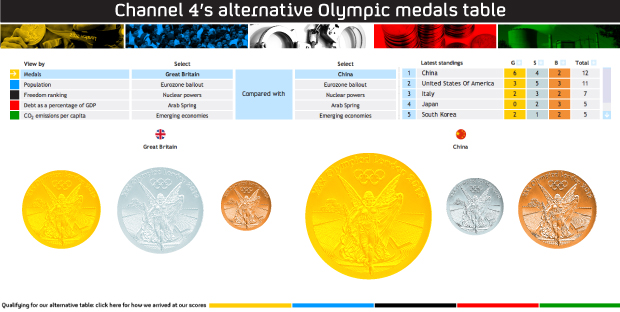Dear Mr Putin, can we talk about…
Having tempted judo-mad Vladimir Putin to visit London by offering him Olympic tickets, what else might David Cameron want to discuss as part of what has been dubbed judo diplomacy?
Syria surely tops the list of issues needing urgent diplomatic attention.
Russia has resolutely refused to back UN action against its ally, and recent charges that rebel groups may have carried out war crimes against supporters of Syria’s President Assad might make Russia feel vindicated in its decision, along with China, to rebuff international demands to back the ousting of President Bashar al-Assad.
This turn of events slightly dislodges Mr Cameron and his western allies from the moral high ground they have occupied since the uprising began to turn increasingly bloody. The Russians have maintained their position is fixed and therefore there is no need to revisit it.
Lilit Gevorgyan, Russia analyst with IHS Jane’s agrees and says the meeting between the two men is “unlikely to break the impasse on Syria”.
She told Channel 4 News: “Russia does not understand why the West is in favour of Arab popular uprisings that ultimately destabilize the region. Moscow believes that revolutionary change of government could allow in religious fundamentalists and conservative religious groups and play to the agendas of the region’s well-organised militant groups.”
“But any attempts by Mr Cameron to press the Russian leader for greater democratic openings, especially in the light of fresh charges against prominent opposition leader Alexey Navalny, are unlikely to have any impact unless the British PM ties them to his country’s commercial relations with Russia”.
Dissent
Mr Navalny has been summoned to a Moscow court to face embezzlement charges. The 36-year old lawyer has come to prominence in Russia for his campaign against corruption. If found guilty, he could face a 10-year jail sentence.
The ongoing detention of the feminist punk band Pussy Riot is also creating anger outside Russia.
They recently appeared in court at the start of a trial on charges of making an unsanctioned performance in February in which they entered Moscow’s Christ the Saviour Cathedral, ascended the altar and called on the Virgin Mary to “throw Putin out!”.
They face up to seven years in prison if found guilty, but speaking in London on Thursday Mr Putin told Russian news agency interfax that although there was “nothing good” about the band’s protest: “Nonetheless, I don’t think that they should be judged so harshly for this,” reportedly adding “I hope the court will come out with the right decision, a well-founded one.”
Recently the Russian Duma has passed a law which means foreign-funded non-governmental organisations (NGOs) have to register as “foreign agents”. Furious at what is seen as foreign interference in among other things the recent controversial elections (which saw Mr Putin restored as Russian president), the state is clamping down on organisations which are seen as drivers of domestic dissent.
As he is currently wrestling with rising dissent against him, Mr Putin is keen to stem any escalation which may be fomented by those with an interest in seeing his power curtailed. No doubt the situation in Syria would have rung unwelcome bells for the Russian government which has faced its own uprisings at home and in neighbouring countries.
The Litvinenko question
Since the 2006 murder of the anti-Putin former Russian spy Alexander Litvinenko – whose widow has called for protests during Mr Putin’s visit – Russia has refused to hand over the man Britain suspects of involvement in the killing, Andrei Lugovoi.
The row has caused one of the biggest fallings out between Britain and Russia since the cold war and it is unlikely that there will be any movement on it during this visit, Mr Putin’s first in seven years.
Complicating matters is Mr Cameron’s declaration that he is keen to promote trade and investment with the Russian premier, a move which chimes with the UK government’s wider stated diplomatic policy to push overseas UK trade at every opportunity.
But having come to the UK on a relatively informal invitation, is it likely that any of these issues, not to mention the continuing questions over BP, will be answered?
Ms Gevorgyan thinks not: “I think for Mr Cameron there is a checklist of things that, as the leader of a democratic nation, he would like to discuss such as the fresh charges against opposition leader Navalny, detention of the all–girl punk band and the saga around Litvinenko’s murder.
“But Cameron has very little weight when it comes to influencing Russia’s foreign policy mainly because Russia sees Britain’s foreign policy as an extension of that of the United States. I also think that Putin is probably more interested in watching his beloved judo than talking about Syria at the Olympics.”
According to our interactive alternative medals table, here is how Russia compares with the UK on some key indices
Russia:
Freedom index – 5.5/7 (Internet: Partly Free, Press: Not Free = overall Not Free)
Population – 1.96 per cent (of world)
Debt as percentage of GDP – 8.372
CO2 Emissions per capita – 11.13 tonnes
GB:
Freedom index – 1/7 (Free as a bird)
Population – 0.89 per cent (of world)
Debt as percentage of GDP – 88.374
CO2 Emissions per capita – 8.97 tonnes
// Popup window code
function newPopup(url) {
popupWindow = window.open(
url,’popUpWindow’,’height=680,width=1200,left=10,top=10,resizable=yes,scrollbars=yes,toolbar=yes,menubar=no,location=no,directories=no,status=yes’)
}
